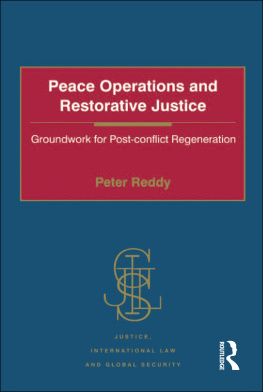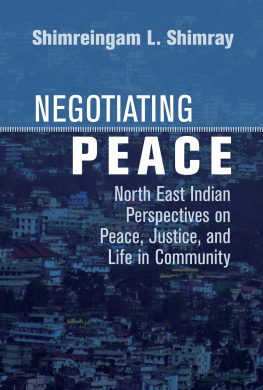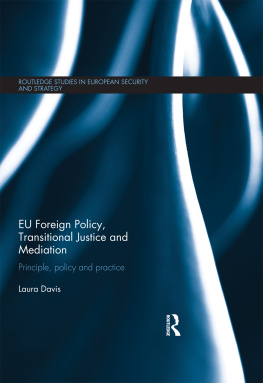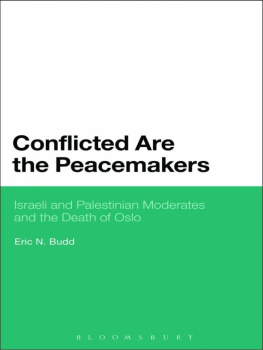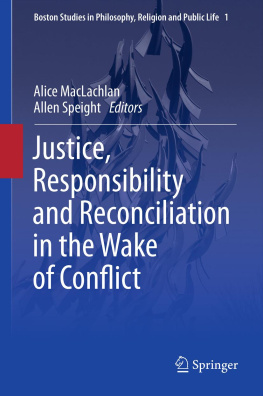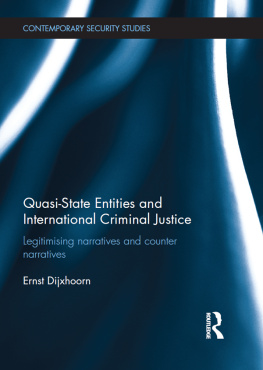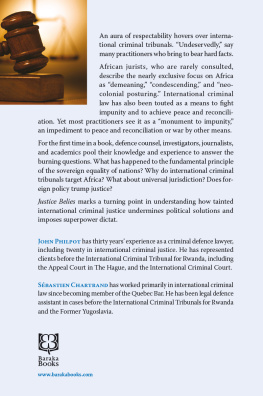The Peacemakers Paradox
Expanding from her path-breaking work in Unspeakable Truths, Priscilla Hayner focuses on a new challenge in The Peacemakers Paradox: the age-old problem of negotiating peace after a war of atrocities. Drawing on her first-hand involvement in peace processes and interviews from the frontlines of peace talks, the author recounts many heretofore-untold stories of how justice has been negotiated, with great difficulty, and what this tells us for the future. Those with the most power to stop a war are the least likely to submit to justice for their crimes, but the demand for justice only grows louder. She also asks how the intervention of an international tribunal, such as the International Criminal Court, changes how a war is fought and the possibility of brokering peace. The Peacemakers Paradox looks far and wide, from Gaddafis Libya to the FARC talks in Colombia, to provide an unparalleled exploration of these thorniest of issues.
A combination of interview-based reporting and political analysis, The Peacemakers Paradox brings clarity to a field fraught with both legal and practical difficulties.
Priscilla Hayner has worked in the field of transitional justice for twenty-five years, the last ten years focused on the challenge of justice in contexts of peace negotiations. She co-founded the International Center for Transitional Justice in 2001, working as program director and head of its Geneva office. Her first book, Unspeakable Truths: Transitional Justice and the Challenge of Truth Commissions, helped to define that field. She has served as human rights advisor in a number of peace negotiations, from Kenya in 2008 to the recent talks in Colombia. In 2017 she was appointed to the United Nations Standby Team of Senior Mediation Advisors. She is based in New York City.
The Peacemakers Paradox
Pursuing Justice in the Shadow of Conflict
Priscilla Hayner

Published 2018
by Routledge
711 Third Avenue, New York, NY 10017
and by Routledge
2 Park Square, Milton Park, Abingdon, Oxon, OX14 4RN
Routledge is an imprint of the Taylor & Francis Group, an informa business
2018 Taylor & Francis
The right of Priscilla Hayner to be identified as author of this work has been asserted by her in accordance with sections 77 and 78 of the Copyright, Designs and Patents Act 1988.
All rights reserved. No part of this book may be reprinted or reproduced or utilised in any form or by any electronic, mechanical, or other means, now known or hereafter invented, including photocopying and recording, or in any information storage or retrieval system, without permission in writing from the publishers.
Trademark notice: Product or corporate names may be trademarks or registered trademarks, and are used only for identification and explanation without intent to infringe.
Library of Congress Cataloging-in-Publication Data
A catalog record for this book has been requested
ISBN: 978-1-138-30342-3 (hbk)
ISBN: 978-1-138-30343-0 (pbk)
ISBN: 978-0-203-73108-6 (ebk)
Typeset in Galliard
by Apex CoVantage, LLC
Brief Contents
PART I
Peace and Justice in Perspective
PART II
Case Studies
Detailed Contents
PART I
Peace and Justice in Perspective
PART II
Case Studies
Little has been published that records the inside story of peace negotiations, and thus this book depended on interviews with those closest to these processes. I am most grateful to all those who have shared these experiences with me: mediators, former warring parties, and other close participants and observers.
Many local experts were particularly generous in sharing their wisdom, experience, and perspectives. Several helped guide and advise me in my research travels, in some cases accompanying me to regions that were difficult to access. My many thanks to Michael Otim in Uganda; Mohamed Htewish in Tripoli and Mahamud Tawel in Misrata, Libya; Isaac Lappia in Sierra Leone; Aaron Weah in Liberia; and Maria Camila Moreno and the staff at the International Center for Transitional Justice (ICTJ) in Bogota, who kindly assisted during my first research visit to Colombia in 2012.
I undertook my first exploration of this topic, in Liberia and Sierra Leone, while on a short sabbatical from ICTJ in 2006. I collaborated in this early research in Sierra Leone with Kristina Thorne and the Centre for Humanitarian Dialogue (HD), and in the Democratic Republic of Congo with Laura Davis and ICTJ; my thanks to both for this partnership, and to these organizations for their early interest in this subject.
Colleagues in Geneva, where I was based for part of the time that I was doing this work, were immensely helpful. I am very thankful to Robert Archer, an early editor and friend who helped me give shape to a complex array of issues that at times seemed impossible to untangle. Terrific colleagues at HD, where I served as senior advisor, opened up the often-closed world of mediation as we collaborated on a number of tough mediation cases, where questions of justice inevitably arose.
When I turned to the impact of international courts working in contexts of war, I greatly benefited from insiders taking the time to talk through policies and difficult dilemmas, including at the International Criminal Court and the Special Court for Sierra Leone. My specific research on the interests of justice and prosecutorial discretion began during a mid-career executive masters on the international law of armed conflict that I undertook at the Geneva Academy of International Humanitarian Law and Human Rights (based at the University of Geneva and the Graduate Institute of International and Development Studies). My thanks and appreciation to many good colleagues there, including Andrew Clapham and Nicolas Michel.
Policy discussions and debates on these overall peace-justice dilemmas have advanced each year at the regular Amsterdam Dialogue meeting hosted by the Dialogue Advisory Group and at the annual Oslo Forum organized by HD and the Norwegian Foreign Ministry. These meetings bring together some of the best minds on these issues and were always valuable in helping move forward my sometimes-muddled thinking.
My work on this book was in its final stages during the two years that I took part in the periphery of the Colombian peace talks. It was an honor to be part of the extraordinarily complex and difficult brainstorming of the New York Group that took place regularly over this period, where we tried to find solutions that might assist the Havana talks. The depth and breadth of the issues that we debated was a constant reminder of how difficult this subject is, and will remain. There is no easy shortcut: that became clear. My thanks and appreciation to the members of this group who brought rich expertise to these meetings, which inevitably fed into my own broader thinking on the subject. In particular, my thanks to Dag Nylander and Idun Tvedt of the Norwegian Foreign Ministry, who first identified the need and opportunity for such a brainstorming group and with whom I worked closely in facilitating these meetings. I would also like to thank the following scholars for their comments on an earlier form of the manuscript: George A. Lopez, Notre Dame; Kenneth A. Rodman, Colby College; Michael Stohl, University of California-Santa Barbara; and Jennifer A. Yoder, Colby College.



